Penmen Press The

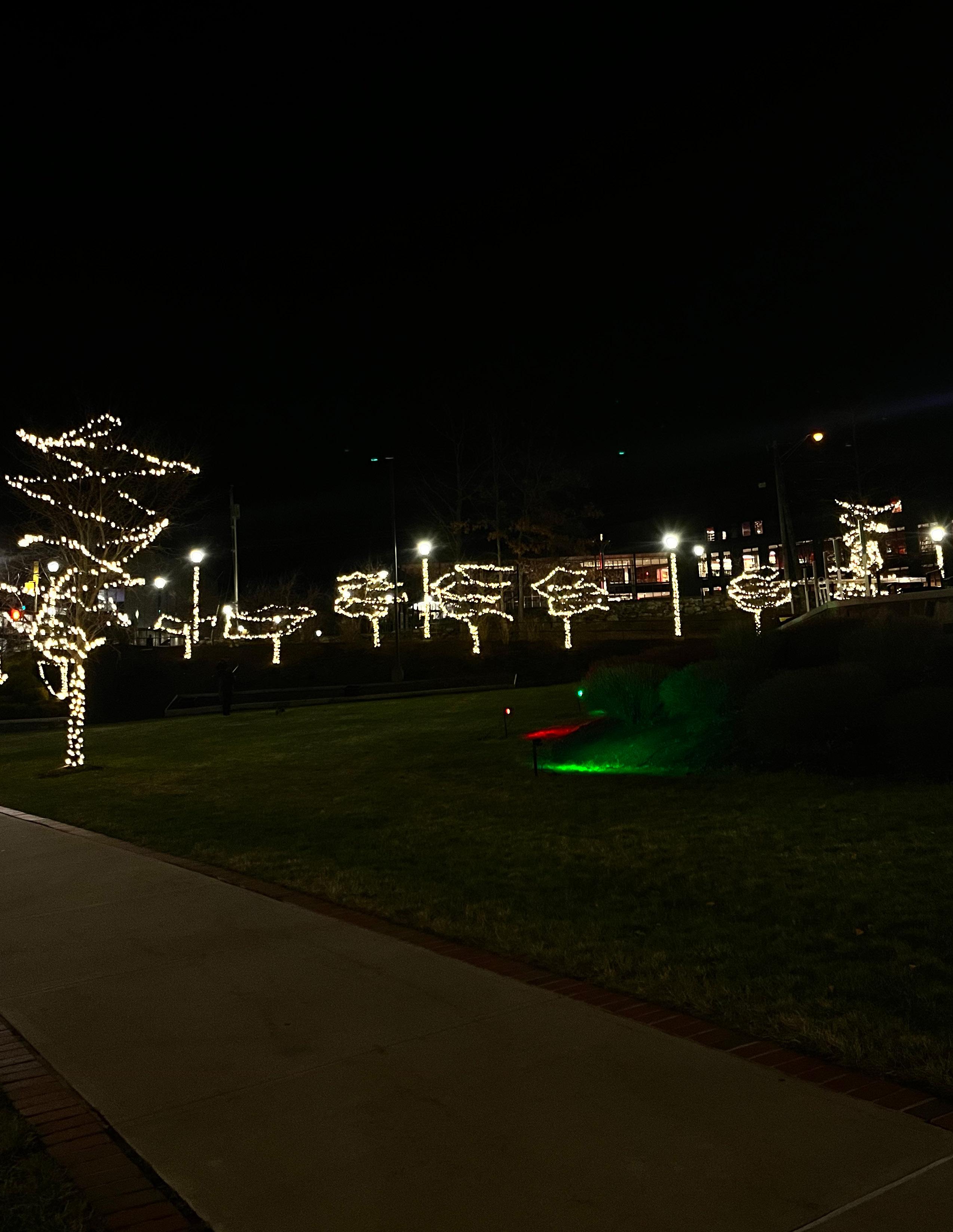
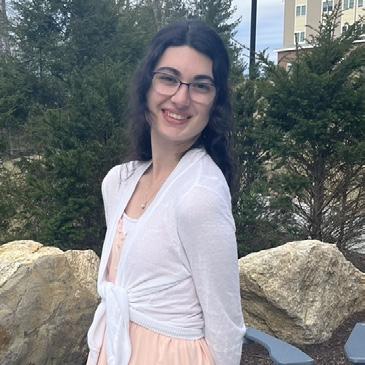
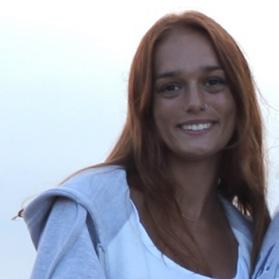
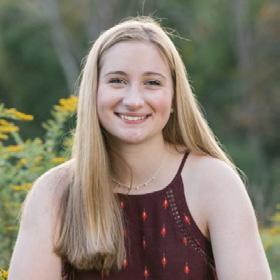

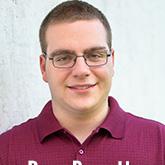

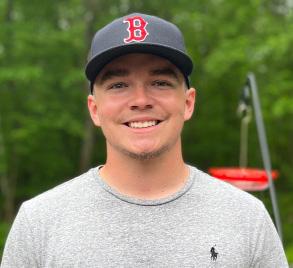

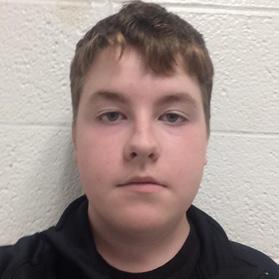

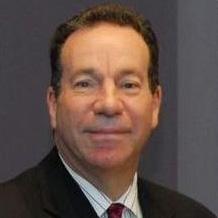
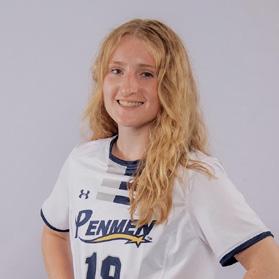

















Winter break at SNHU holds different meanings for each community member. It’s a time to go home to family and friends for the holidays, a transition period between semesters, or a time to recuperate after a long semester.
In the past, winter break lasted up to three weeks. However, that changed for the ‘21-’22 school year when winter break was shortened to two weeks. This year, winter break lasts from December 17 to January 1. Additionally, students are expected to move into dorms on New Year’s Day.
A shorter period between semesters does little to benefit SNHU community members, instead creating more questions and concerns.
Burnout is one of the many factors that were not taken into consideration when switching to a reduced winter break. After a long semester of balancing schoolwork, extracurriculars, and jobs, students look forward to a well-deserved break from responsibilities.
Burnout affects motivation to maintain obligations and can cause a shift in priorities. Students will focus on their well-being before their education, which can affect their performance in their required courses to graduate.
Students ended the semester burnt out, yet are now expected to return to classes not even two
days into the new year.
For many, going away to college is a new experience; one in which students are placed into a new environment, away from their families and friends whom they have known for their whole lives.
With the advent of the university’s shortened winter break, students who may be experiencing homesickness and need that social recharge will barely get the chance to see their loved ones.
SNHU has over 400 international students on campus, which is about 15% of the campus population. The winter “break” will barely give them a chance to take a much-needed hiatus. Students who live overseas or across the country don’t often get the opportunity to go home throughout the semester, and often rely on winter break to see their families. However, when the trek from school to home takes one, sometimes two, days, that two-week break gets even shorter.
Many students are opting to stay on campus over the break because spending thousands of dollars on flight tickets isn’t worth it when they are barely getting the chance to get their feet in the door.
college students is that they are all broke, and that stereotype is true in many cases. Many students find it hard to work on campus when they are trying to juggle five classes, involvement on campus, a social life, and more.
Students often rely on the opportunity to go home and make some cash before returning for semester two. With under two weeks of eligible working time, students will have virtually no chance to work, given that most employers aren’t going to hire someone for less than two weeks.
The reduced winter break doesn’t only affect students. Faculty on campus also experience the effects of having less time between semesters. Many professors are required to have their spring term course curriculums completed before they post final grades for the fall term.
Preparation for the spring term is no simple task. Furthermore, the shortened winter break also reduces the time spent with loved ones for faculty and staff.
One of the explained reasons why the spring term begins a week earlier is to be in line with the online school calendar. SNHU’s online school is vastly larger than its campus-based programs. However, online students have a more flexible schedule than
students on campus.
Online school provides a flexible schedule for independently driven individuals. It allows students to learn on their own time while being able to hold full-time jobs and maintain other obligations.
Campus classes are more structured and affect the schedules of students that attend them. Students work around the courses they’re enrolled in, maintaining workloads while participating in extracurriculars, jobs, and outside activities.
Campus students already have restricted schedules. Reducing winter break lessens what little flexibility campus students have in their already-restrained schedules.
In fact, there is no obvious benefit for students in aligning campus and online classes. While there is a minority of campus students that enroll in an online
course or two, it does nothing to benefit the majority of campus students who prefer in-person classes.
SNHU executives also explained that shortening winter break would allow students to get out of school a week earlier. The intention was to give students a “competitive edge” when searching for summer jobs and internships.
However, many internships don’t begin until May and June. Students submit their applications and interview before school gets out. Furthermore, there is no guarantee students will utilize that extra week of the summer to put out applications.
The SNHU community has voiced their thoughts on winter break since the initial announcement during the ‘20-’21 academic year.
During the last academic year, students began a petition on change.org to “Bring Back SNHU’s 3 Week Winter Break,” gaining up to 350 signatures. Students and some faculty have expressed their concerns and dissatisfaction with the reduced winter break.
Faculty and students don’t need an extra week of summer vacation; they need a longer buffer between semesters.
SNHU is doing its community members a disservice by not respecting their time or taking their concerns into account. The SNHU community gives everything to the university, and it’s time they returned the favor.



Yung Gravy will be performing at this year’s Major Concert. CAPE announced the news at last month’s Drag Queen Sex Toy Bingo. The rapper has grown popular in mainstream media and is known for titles such as “Mr. Clean” and “Gravy Train.”
This year will be the first time the concert takes place outside of SNHU grounds.
“In the past, we have had our Major Concerts right on campus and in the gym,” said CAPE Vice President, Megan Rogers (‘23).
The 2023 Major Concert will be at the SNHU Arena. This change allows the public to purchase tickets alongside students; however, Rogers wanted to make sure that the concert was still special for SNHU students.
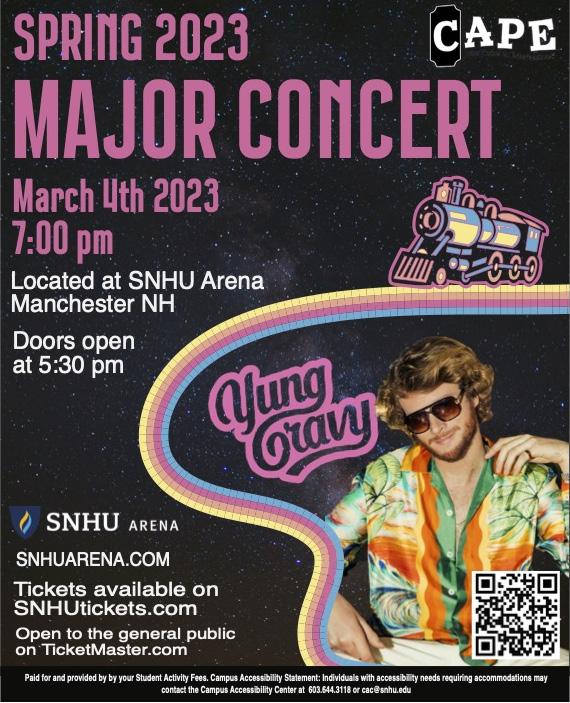
“It’s cheaper for students, you can access your tickets through a different website,” said Rogers, “On Ticketmaster, it says ‘SNHU’s Major Concert.’ It’s still our special event.”
Tickets for students are available at SNHUtickets.com for $20, or at the door on the night of the event.
Phi Delta Theta member, Timmy Paul (‘23), expressed his excitement for the concert. This will be Paul’s last major concert before he graduates in the spring.
“I missed out on the last couple [of] years for Major Concerts. To be around for this one is really good vibes,” said Paul, “It is exciting to see what a [Yung Gravy] show would be like live.”
Rogers went into detail about the process of picking and booking an artist for a Major Concert. It started over the summer with an
Instagram poll.
“I thought it would be fun for students to have a little bit of a say [as] to who is coming to campus,” said Rogers.
Once the student body voted for an artist, Rogers began the booking process.
“We went through the whole contract and made sure
everything was all set with that, and then we were finally all booked,” said Rogers.
The Major Concert is scheduled for March 4, 2023 at 7pm. Doors open at 5:30pm. Students looking for more information can follow CAPE’s Facebook and Instagram, @ capeatsnhu.
The Deborah L. Coffin Women’s Center offers an accepting environment for students who feel lost on campus or who need a supportive place to be themselves. They embrace all students who need a safe space, no matter their identity or background.

“Our goal is to make sure people find a home on campus,” said Saran Ousseini (‘23). “It’s a great space for people to come and hang out or socialize, or if they’re not comfortable socializing, they can just relax. It’s a free space for everyone to be comfortable without worrying about the outside world or feeling judged.”
Despite its name, the Women’s Center isn’t just open to women.
“When the center was first opened, it was more of a space for women to come and feel comfortable and safe. But obviously, we don’t want it to only be for women. We want it to be open to everyone,” said Kenz Curry (‘25). “Anyone who identifies as a woman, even if you identify as a man, you can come in.”
Students looking to be more involved in the community or wanting to build lasting relationships can turn to the monthly events hosted by the Women’s Center and the Office of Diversity. Both offices are located in the Green Center.
“We usually have five events a month. We have movie nights, [and] we have community talks. This month we’re doing [an] ornamentmaking event,” said Curry. “We try to do as many events as possible to bring everyone together and familiarize everyone with the Women’s Center. A lot of people don’t know that we’re here, and we
try to do as much as possible to make people feel welcome.”
The Women’s Center and Office of Diversity also run clubs for students to join. Some of the affinity groups open to new students are Mixed, Sisters of the Yam, Hola!, Fluid, M.B.M. Men’s Group, and a new group this year; Steminist.
“My favorite event was ‘Take Back the Night’ this year,” said Monica Robitalle (‘25). “I’ve always wanted to go on a women’s march, it’s always been a goal in my life.
We walked a lot, we chanted, [and] we had glow sticks. It was really fun and meaningful.”
Other events hosted by the Women’s Center also give a voice to everybody. Students can perform, pass messages, read poetry, talk about their personal life experiences, spread awareness, and share their story with the world.
The Women’s Center is located in the Green Center room 121A, with the doors always open to new faces and new beginnings.

Radio SNHU hosted their annual “Rock The Night Away” concert, featuring The Breeze, in The Last Chapter Pub on November 17. The band covered songs by various artists, including Taylor Swift, Guns N’ Roses, and Journey.
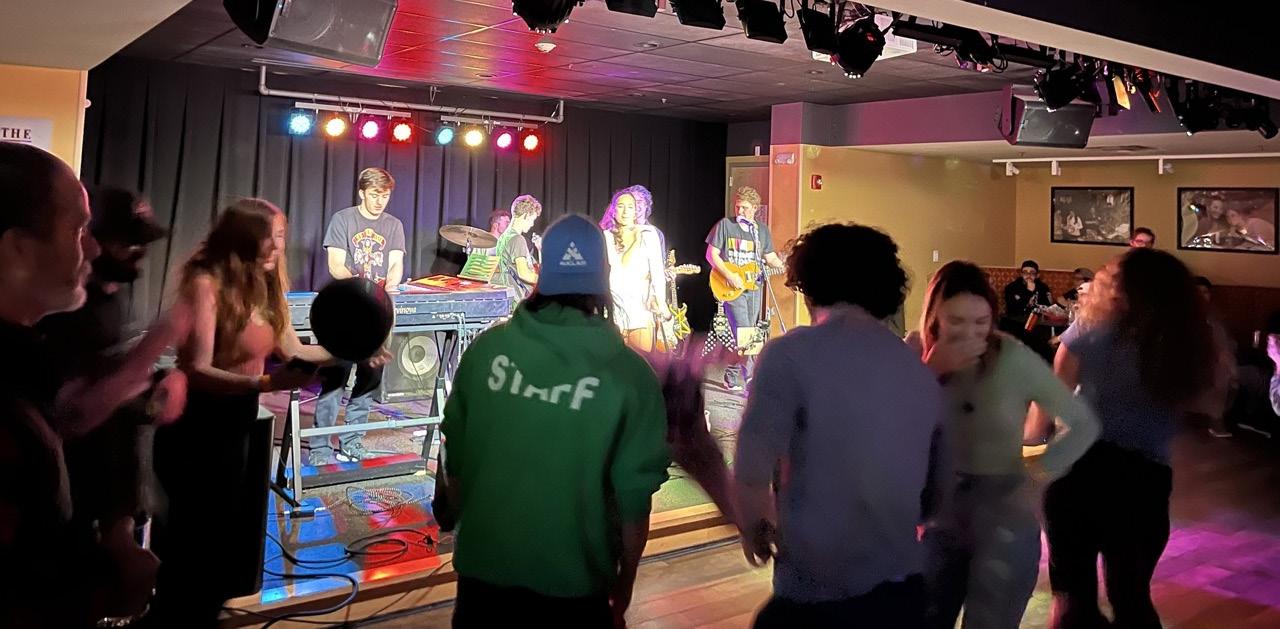
Students began streaming into the Pub at 8pm. Throughout the performance, audience members sang along, clapped, and occasionally got up to dance.
The Breeze initially closed out the show with Journey’s “Don’t Stop Believing,” but the audience chanted for an encore. The band performed a couple more songs, including a guitar solo by lead guitarist, Jacob Calamar. The show concluded at approximately 10:40pm, going past the initial scheduled close of 10:30pm.
Songs The Breeze performed included Olivia Rodrigo’s “good 4 u,” Queen’s “Bohemian Rhapsody,” and Disney Channel classics such as “Music’s In My Soul,” performed by the Jonas Brothers in “Camp Rock” (2008).
Members of The Breeze, who are all from Massachussetts or Rhode Island, appreciate the unifying quality of music. As stated on their website, “The Breeze loves to harness the power music holds, with a broad audience of fellow music lovers and passionate musicians. The Breeze has found great joy and satisfaction by being involved in the creative music process and connecting with their audience.”
Audience members, such as Math Club Vice President Sean Joudrie (‘23) recapped the event as entertaining.
“My roommates and I love live music, and this event was a wonderful surprise,” Joudrie said. “The band played familiar, classic songs that everybody could sing and dance to, and the bands energy spread to everyone in the room. [I’m] looking forward to more similar events.”
Radio SNHU announces upcoming events on their Instagram, @official_radiosnhu. Interested students can also join meetings, which occur every Tuesday in Robert Frost 314 at 3:30pm.
More information about The Breeze is available on their website, musicthebreeze. wixsite.com/the-breeze. Additionally, students can check out their Instagram, @ the.breeze.music, for the latest content.
Creating an accepting academic environment starts with making education attainable to all. Accommodating the needs of students who live with physical, mental, or sensory disabilities creates equal opportunities for students to learn.
While faculty and staff at SNHU recognize the importance of accessibility, students share their personal experiences regarding on-campus accessibility.
“The campus and all the buildings are very accessible, I’ve never had any problems accessing a space with [my] mobility aid,” said J Rodriguez (‘26). “All my teachers are very understanding when a medical problem comes up, whether it be physical or mental health-related, and they are always willing to meet if I need extra help.”
Awareness of overall health, especially during unfamiliar college experiences, gives students the flexibility to pursue their passions in education without becoming overly stressed. Rodriguez describes her experience navigating campus and the resources that provide her with proper accommodations.
“The Campus Accessibility Center [CAC] is very helpful with getting usable accommodations and are always there to help if issues come up,” said Rodriguez. “Overall, SNHU was one of the most accessible campuses I visited when I was looking at colleges back in high school.”
Students have also shared their concerns regarding academic accommodations at SNHU.
“It’s common that my professors won’t fully understand [my] IEP, and it can cause more harm than good,” said Esther Blood (‘25). “I have high anxiety, and my accommodations state that the teacher shouldn’t call on me in class unless I have my hand raised. But there’s common miscommunication where professors interpret it as ‘don’t talk to me,’ even outside of class hours. It almost makes me feel physically separated from the rest of the class.”
Academic accommodations reduce barriers so students may learn and participate in the classroom. Eliminating these barriers lets students gain equal access to course material; this allows them to complete assignments, properly show their understanding of the curriculum, and be included in the regular course of study.
“Professors either don’t listen to the IEP, and I have to advocate for myself more than I reasonably should, or they take it too seriously and make it impossible to communicate,” said Blood.
Accommodations are meant to increase accessibility for all students regardless of their disability. Accommodations should not be treated as a disability, nor be seen in a bad light because it deviates from the way another student accesses the same material.
“Fun fact, theADAhandicapped buttons can legally be put too high for people to press them,” said Joe “xxMakeAWishKidxx” Miller (‘25), transfer student and commentator for the SNHU
Esports Arena.
“I feel like with SNHU specifically, they’ve done a lot,” said Miller. “Even if a law says a specific thing, they will go outside the bounds of it to actually help. In Kingston, they did something really nice and gave me this garage door opener for the two front doors. Which helps a lot because I can now get in and out of the building myself. They didn’t have to do that, they could’ve just said ‘hit the button better, they’re in the legal requirement’ but they actually gave me something helpful.”
Miller further states his experiences at other colleges compared to SNHU.
“When I went to UMass Lowell, the way I had to get into every building was this weird side entrance away from the main area, up in this tiny ramp off to the side, or I had to go through a back janitor’s door,” said Miller.
“It felt like I was separated from everyone else. And here, it’s perfectly fine because they built their buildings without stairs.”
Presenting kindness, patience, and understanding towards each other is a step in creating a friendlier and more accessible environment. From a social aspect, SNHU’s range of accessibility has allowed students to feel more included and involved on campus.
Students who want more information on accommodations can visit the Campus Accessibility Center, located in Suite 120 of the Green Center. Their office can also be contacted via phone at 603.644.3118, or email at cac@snhu.edu.
The demolition of Stark Hall, which was located beside Exeter Hall, occurred at the end of October. The demolition lasted approximately two weeks with different stages for the removal of the building.
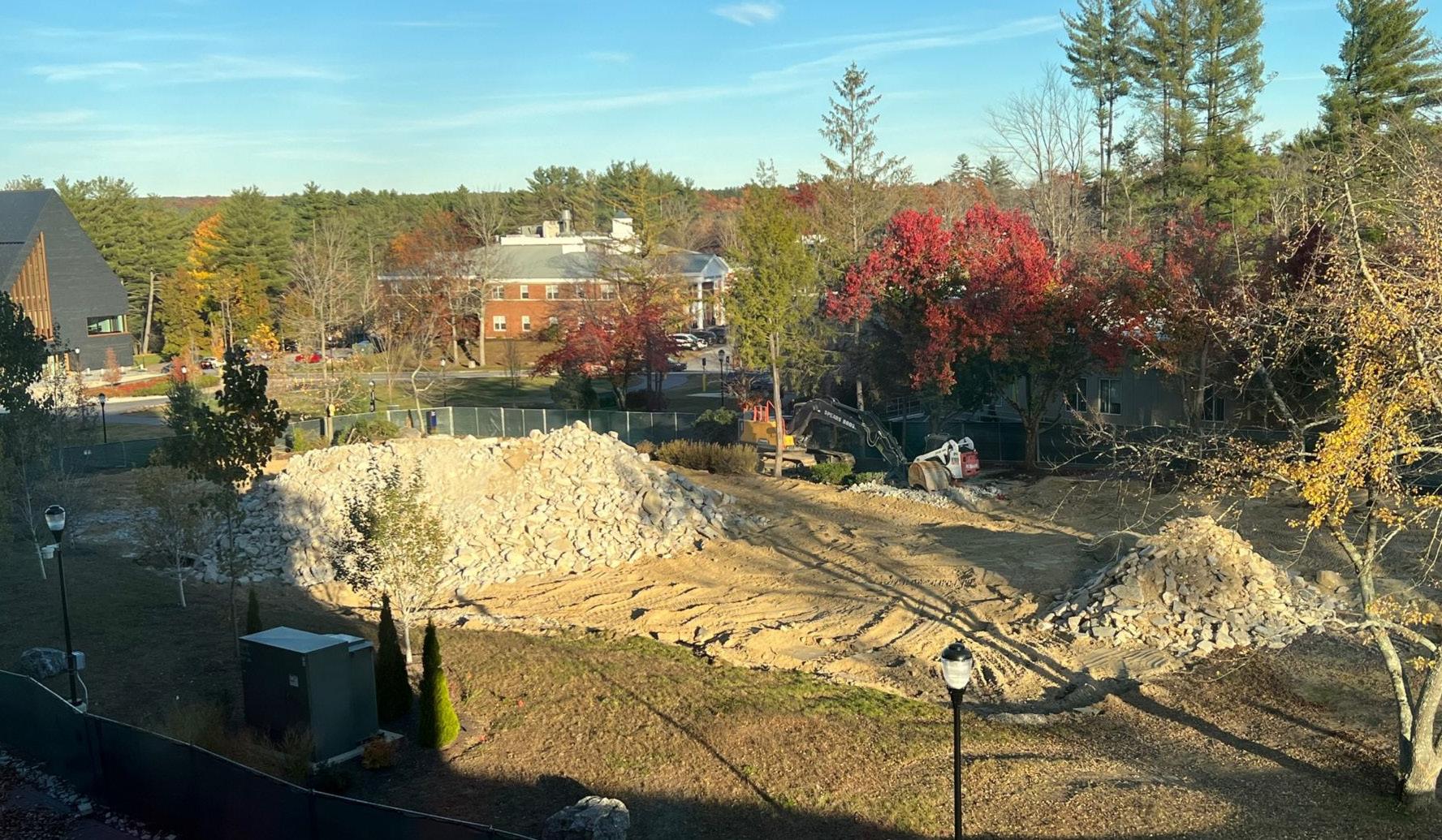
Students, especially those in Kingston Hall, enjoyed watching two excavators tear the building shreds.
While what’s next for the space is undecided, an “adult playground” and activity center would be a staple for students. It could also make SNHU stand out, as not many colleges have such amenities.
The playground would provide a place to recharge for students experiencing burnout or mental health issues. They would be able to get fresh air
in a safe and fun environment. Having good mental health is important for students, and a space where they can feel a sense of joy and energy will help in the long run.
Kingston Hall Front Desk Manager, Amelia Mosnicka (‘26), said a playground and activity center would benefit students on campus.
“It would give us the opportunity to feel like a kid again even though we are adults,” said Mosnicka. “The playground would be a good spot for outdoor events.”
There could be adult swings, a horseshoes arena, a gaga pit, and a sitting area with park benches and tables. It can also be a great place to do homework and build connections in the
SNHU community.
“An adult playground would be a really cool hangout spot and to do more activities,” said Jace Henderson (‘26), a Kingston resident.
The space would also provide an area to hold events. The key to this adult playground could be a gazebo, which could be a wonderful place to hold events including concerts and plays underneath the stars.
The playground could also feature “SNHU” spelled out in big letters; this touch would serve as a great photo place for campus tours, groups, and people visiting the university.
An adult playground will allow students to feel nostalgic for their childhood while building a community that feels like home.
The uncleanliness of Kingston’s communal kitchen is a calamitous nightmare. Dishes pile so high in the sink that residents have no way to clean their own; as a result, students have resorted to placing dirty dishes on top of the microwave. This unsanitary environment stretches beyond simple chores and has begun to put other students’ health at risk.
The cupboards, which once held all of Kingston’s kitchen supplies, are bare. This was caused by a protocol that was put in place to keep the communal kitchen clean. The protocol states that any kitchen supplies borrowed must be signed out, cleaned, and returned to the front desk so they can be available to other students, the kitchen must be kept cleaner than how the last person left it, and students must take their own dishes back to their room. Students are not adhering to this protocol as food decays in the sink and the tower of baking trays grows.
Eating on campus is a challenge for students with severe food allergies. Many depend on homecooked meals because they can’t eat safely on campus.
“For people who are always in the kitchen cooking, why wouldn’t you clean up after yourself so you can continue to do that?” said Kenz Curry (‘25). “Sometimes we go down there and there’s a pile of dishes, like, how do they expect us to sign dishes out?”
To sign dishes out, students must hand their student IDs to the receptionist on duty. The student is to get their ID back after they return the dishes. This aspects of the protocol is rarely followed, as there aren’t any dishes to be signed out.
“The beginning of the year, it was rough,” said Curry. “There were no dishes in the cupboards, and it was all [in] the sink, and someone had to wash them because we needed to use them. It was so disgusting.”
SNHU only began enforcing rules to address Kingston’s sanitation problem this year. Despite good intentions, it has backfired on both Kingston residents, and residents of other dormitories.
“It’s upsetting. It’s such a pretty kitchen, and anytime I go to make food, I just want to deep clean it,” said Monica Robitalle (‘25). “It’s ironic that Kingston has a full kitchen with a sink and stove, and it’s a freshman and sophomore dorm, but the junior and senior dorms don’t have [a] full kitchen. They should at least have one stove in every dorm because we want to cook.”
It is astonishing that there is only one fully functional kitchen in Kingston, especially since there are five floors and just over 380 residents. That many students expected to share one kitchen is
an unrealistic design. To make matters worse, residents from other dormitories use Kingston’s kitchen because there isn’t one in their own.
“I have ten dollars in dining, so if I’m going to spend actual money on food, I’m going to spend it on good food that I can cook,” said Curry. “They should give us a stove; it doesn’t even have to have an oven. Just a stove so we can cook without walking all the way to Kingston’s dish pile. Give us something.”
Student access to fully functioning kitchens on campus is limited to one that can’t be relied on. This problem goes beyond health and safety concerns, reaching into issues of basic accessibility.
Students can do their part in keeping the kitchens clean by cleaning up after themselves, holding others accountable for their share, asking for help, being mindful of food safety, and returning their borrowed dishes to the front desk when done. Making this community effort can allow for culinary freedom.
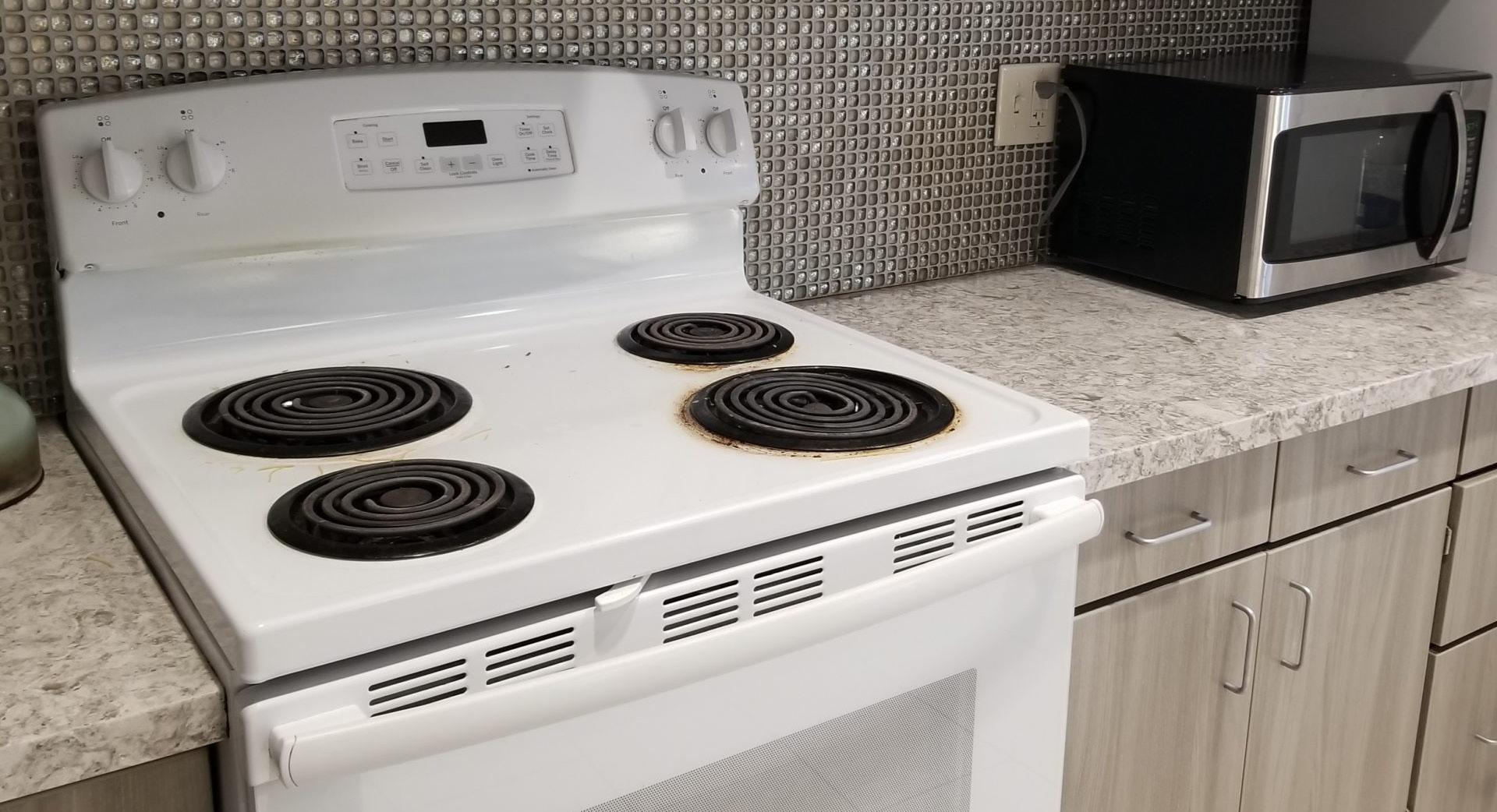
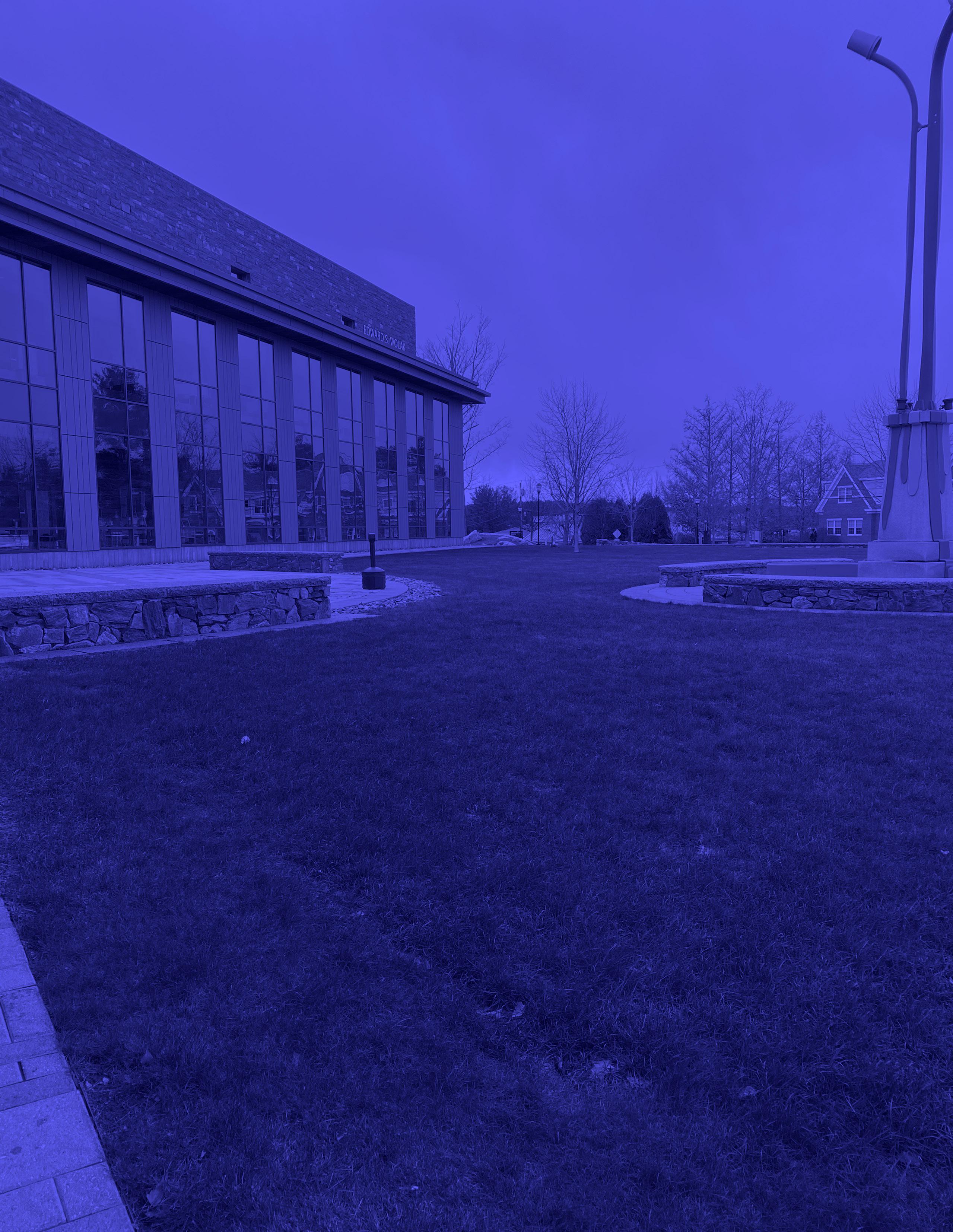
 Avery Bertrand Staff Writer
Avery Bertrand Staff Writer
The Student Air Traffic Controllers Association (SATCA) is a club for air traffic controllers and anyone with any aviation interest. They meet in the ATC simulator room in the SETA Annex and run simulations.
SATCA has existed since 2016 and has around 20 members. The club aims to introduce people to air traffic management and show that it is less intimidating than people think. Once people start messing around with the simulator, they commonly find it quite fun.
SATCA Secretary Colby Fox (‘23) has witnessed the progress of the club over time.
“I’ve been on the E-Board
for quite some time now and it’s been a blast,” said Fox. “I’ve got some good leadership skills from it and it has been a good way to stay connected to the aviation crew at SNHU.”
SATCA President Bobby Sedlatschek (‘23) shared his experience with the logistical side of the club and what goes into running it.
“I’ve enjoyed the club very much,” said Sedlatschek. “It has been an excellent way to practice air traffic control scenarios in the simulator, as well as a way to make new friends. My fellow E-Board members and I have held movie nights, pizza parties, simulator sessions, giveaways,
and much more over the course of the time I’ve been president of the club.”
Sedlatschek has been a part of SATCA for four years and is in his second year of being club president. He explains that there is a lot involved in air traffic control and the profession is always evolving.
“There is always something new to learn in the world of air traffic control, no matter how experienced you are,” said Sedlatschek.
SATCA meets biweekly on Tuesdays at 6:30pm in room 022 of the SETA Annex. For more information, email SATCA at satca@snhu.edu.
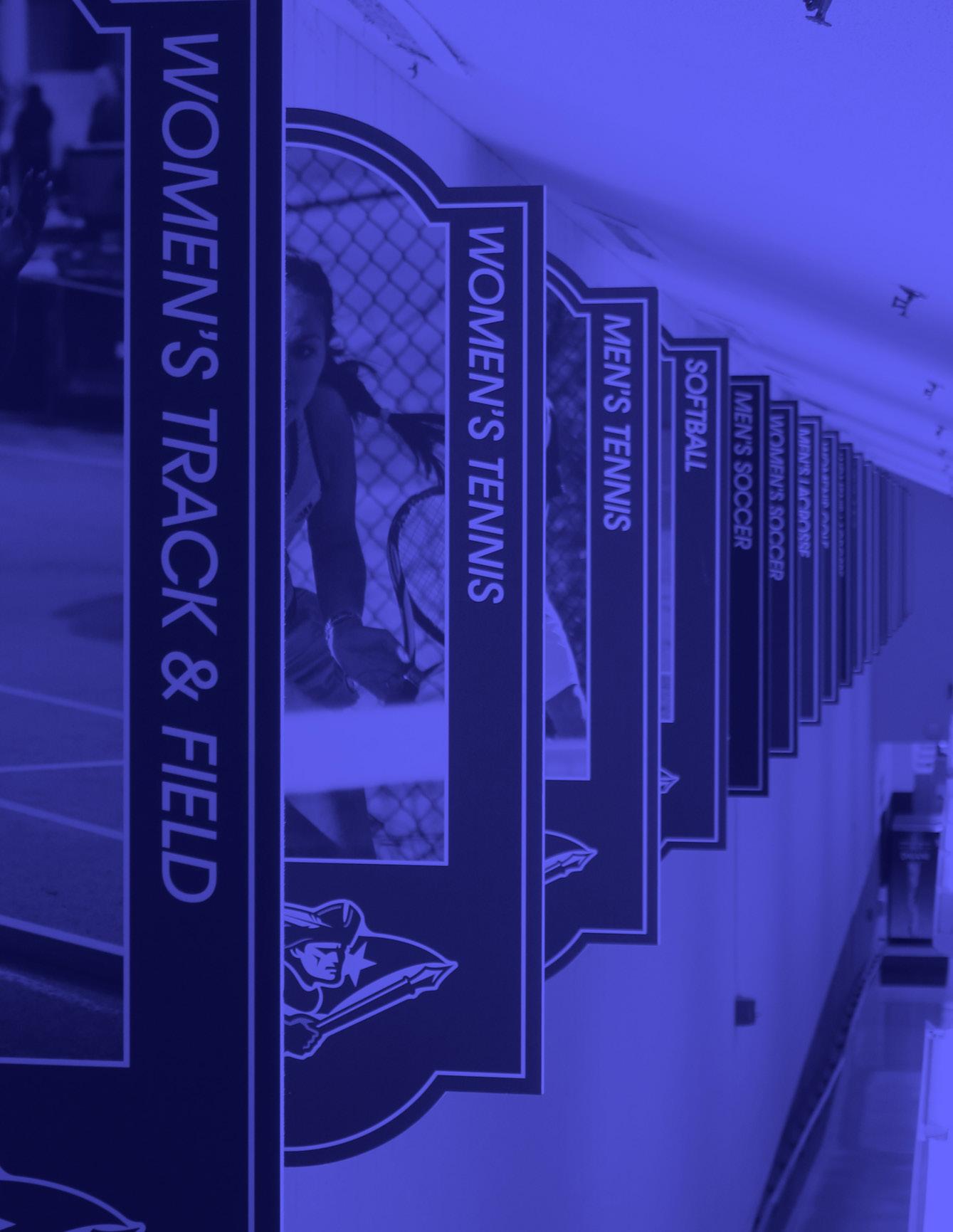
The SNHU women’s volleyball team won the NCAA East Regional tournament for the first time in program history on November 19 in Springfield, MA. The championship match resulted in a win over Adelphi University after a full five sets.
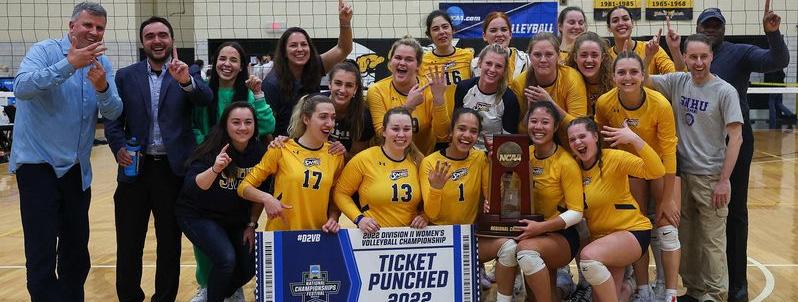
With the victory, the team advanced to the NCAA quarterfinals in Seattle, WA starting on December 1. The team will play against topseeded Concordia University out of St. Paul, MN on Saturday, December 3.
Outside hitter, Ana Pimenta (‘23), spoke on this season’s success and discussed what it is like for the team to be in their position.
“We have been preparing ourselves since last season, and we are extremely proud of how far we’ve come. The beginning was very challenging, but we had the ability to push ourselves to get to where we are now,” said Pimenta.
She discussed what made this year different compared to previous years, considering the
factors that helped the team succeed.
“What made this season different was our mentality,” said Pimenta. “We had a great addition to our team which was our mental strength coach.”
With all the positive factors that helped women’s volleyball throughout this season, the program is seeing success that it has never seen before.
“I’m still processing the whole ‘regional champions’ [title]. It hasn’t hit me yet because there were so many emotions…winning the [NE10] title was worth every sweat and tear dropped during the season,” said Pimenta.
Fellow teammate of Pimenta, Claire Wohlleber (‘24), gave her insight on what this season means to the volleyball program.
“This season has felt unbelievably amazing,” said Wohlleber. “I am still trying to process all that we have achieved as a team and that we are going to Seattle as one of the top eight teams in the nation for Division II volleyball.”
Wohlleber discussed what the
atmosphere is like competing in the NCAA championship tournament against teams outside of the team’s conference, the NE10.
“To be competing in the NCAA championship feels extraordinary…It also feels amazing to be representing SNHU and all of the other people who have supported us along the way,” said Wohlleber.
Playing against teams outside of the NE10 conference is new to the team. Wohlleber gave input on the team’s preparation for facing new teams.
“It is cool to play new teams because it does create a challenge of who can make these in-game adjustments more efficiently…we always approach each team the same way in that you can’t take any team for granted…anything can happen in a game of volleyball,” said Wohlleber.
The women’s volleyball team looks to adjust to the NCAA competition with hopes to advance as the season concludes.
The main rosters of each SNHU Esports team made it to the National Esports Collegiate Conference (NECC) playoffs. The teams that qualified include League of Legends, Overwatch 2, Valorant, Rocket League, and Super Smash Bros. The playoffs began on November 14.
Both Valorant teams, as well as the League of Legends and Rocket League teams, were eliminated in the quarterfinals. However, Overwatch Sapphire and Smash Bros Blue advanced to the semifinals.
Alex Goedel (‘22), the team captain of Valorant Yellow, shared his experience during the season and playoffs.
“Going into [the] playoffs, we were feeling really confident, but were definitely upset by the outcome. We ended the regular season seventh out of ten and lost in the quarterfinals of [the] playoffs,” said Goedel. “Even
though our playoff run ended quickly, I’m proud to see all the teams step up and adapt quickly to a lot of changes and shortcomings we had this season. While I may be graduating, I’ll be cheering them on in the spring.”
Players of other teams also felt strongly about their seasons. Adam ‘Wishbone’ Gaboury (‘25) of the Rocket League team spoke on what this season meant to him and what the teams have to look forward to.
“We made it into the playoffs as the fourth seed in our division, but unfortunately fell to McGill University during the first round. Despite getting knocked out of the playoffs in the first round, I believe the team collectively feels confident and is hopeful for next season,” said Gaboury.
Colby ‘Cruss’ Russel (‘26) of Smash Bros Blue discussed where his team stands now that the season is concluding.
“I’m feeling pretty good so far as we have already [upset] our seeded place, and I’m confident we can go further. There [are] some really good players ahead of us now. We finished third in our division and are now top four of [the] NECC playoffs,” said Russel.
Overwatch player Matt ‘Palzee’ Hamel (‘24) also gave his thoughts on the season.
“I personally am feeling incredibly confident in our team as of now,” said Hamel. “We were put in a tough position with substitutions in round one of [the] playoffs, but we’re a strong enough squad to where we were able to run it back. I think the rest of the team has similar thoughts...NECC is a league with some really tough competition, and we’re improving week by week. I think we’re legitimately in a really good spot to take the whole thing.”
The fall semester is coming to a close and with it the fall sports season. Golf, women’s soccer, and field hockey are among the sports that have recently wrapped up their season.
Men’s golf freshman and winner of multiple NE10 Rookie of the Week awards, Sean Dully (‘26), spoke on how his season
went.
“Overall, the fall season was strong. We finished second in [the] NE10s. I’m looking forward to the spring when regionals take place,” said Dully.
The team finished seventh at Post Eagles Invitational at Watertown, Connecticut on October 10. Overall, the team
had a score of 600, with Dully having a two-round score of 157. The team also played on October 11, placing ninth with a score of 905. Dully finished off with a 238.
Dully went on to speak about what he and his team have to look forward to next season.
“Next year should be
great. Hopefully, we can keep the good play going and the incoming freshman enjoys his first season,” said Dully.
Captain of the women’s soccer team, Alyssa McCarthy (‘23), reflected on her final season with SNHU.
“As I captain, I thought it went well this year. Morgan, our other captain, and I really wanted to go into the season being able to bring our new team together and for that to reflect in our play on the field...There was not a linear path to get there, so it was a lot of brainstorming through our ups and downs that we were having on the field. We were constantly trying to think of new ways to get over our struggles, and even though it may not have [shown] in our record, we could definitely see improvements in other areas during our practices and off the field,” said McCarthy.
As a leader, McCarthy knew when her team needed to adjust to certain obstacles they were facing.
“This season, our team did okay. We definitely didn’t end up having the season we planned for, but we continued to push through and show up together as a team,” said McCarthy. “We did end up winning our final game of the regular season which allowed us to make it into the NE10 Tournament.”
The team played a total of seventeen games, winning six, losing six, and tying in four games.
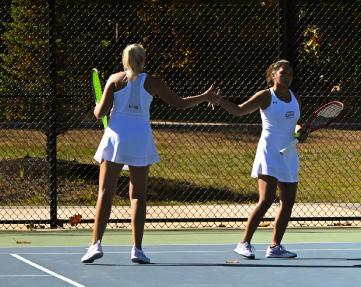
While the team didn’t win as much as they had hoped, there were still moments that the team could celebrate.
“A standout moment for our team that happened this season was making it to the NCAA tournament,” said McCarthy. “We were not expecting it, so it was definitely a surprise the night of the selection show when we found out we were still in it. With this news, we were ready to just show up and play as hard as we could. Unfortunately, we
lost, but it was nice to have one last game together to end our season.”
Multiple NE10 Rookie/Goalie of the Week winner of the field hockey team, Emma Peeters (‘25), spoke on what the season meant to her.
“It feels kind of sad now that the season is over. Every week it was so fun to play with the team and I wish it could go on a little longer. But we also have had a long season, so I feel like everyone needs a little bit of rest,” said Peeters.
This season, the team played a total of 19 games, concluding with eleven losses and eight wins. The team was seeded last for the NE10 championship playoffs and lost in the first round, according to SNHU Penmen.
Peeters gave her thoughts on how she felt she performed this season on the field for her team.
“I think I had a pretty good season. It was my first year here at SNHU, so of course, there was a lot I had to get used to....
But as the season was going on, we all knew what we needed from each other, and I knew how I could help my teammates. I enjoyed every game a lot, and I can’t wait for the next season to come,” said Peeters.
Like any sport, there are moments that stand out more than others. Peeters described one of those moments when she and her team felt something special.
“For me, the proudest moment was the last game of the season, the quarterfinal of the NE10 championship.
Although we lost this game, we played very good and most importantly we played as a team,” said Peeters. “We made it so hard for one of the best teams [in] the conference, and we could have won that game. It was sad we lost and that it was the last game for some of my teammates, but I was very proud of the whole team.”
With the fall season ending, winter sports, such as basketball, ice hockey, and women’s indoor track and field, will be underway.
The Southern New Hampshire University Penmen Press is a news publication produced by Southern New Hampshire University students and funded largely by the Student Government Association of the University. It is our responsibility to inform the SNHU community about events on and around campus. The Penmen Press will print any material found to be factual and in good taste by the editorial staff of the paper. The views published do not necessarily reflect the views of Southern New Hampshire University. The Penmen Press is published monthly during the academic year and is printed on campus by Copies Plus. To contact the newspaper, please email us at penmenpress@snhu.edu
